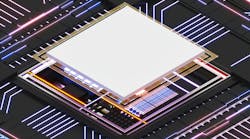STMicroelectronics has started selling an inertial sensor that integrates a custom machine learning core to not only measure but also make sense of movement. The chip is designed to be dropped into smartphones, wearables or other consumer devices without straining their batteries. The machine learning core interprets the movement picked up by the 3D MEMS accelerometer and 3D MEMS gyroscope.
The sensor improves how accurately Internet of Things devices can gauge a person's physical activity and determine how healthy they are, said Andrea Onetti, vice president of the analog and sensor group at STMicroelectronics. The inertial sensor's machine learning core spots patterns in speed, acceleration, vibration, position and other data that can be used for fall detection and health monitoring. That helps cut the system's overall power consumption, Onetti said.
The chip is capable of conserving more power than previous products, STMicroelectronics said. The sensor contains more internal memory than other sensors are normally allotted, meaning it can handle more computations without having to send data to the main microcontroller, which requires additional power. When it needs to communicate with the central processing unit, a high-speed digital interface shortens connection times, resulting in extra energy savings.
Last month, STMicroelectronics introduced a tool that lowers the bar for customers to run artificial intelligence in 32-bit microcontrollers. The tool, Cube.AI, turns algorithms trained in the cloud to identify sounds or handle other chores into smaller, simpler bundles of code that fit into microcontrollers. They can then handle inferencing without having to defer to remote data centers. Not having to consult with the cloud helps to lower latency and cut power consumption.
The LSM6DSOX inertial sensor is in volume production. And it costs $2.50 when ordered in thousand-unit quantities.

